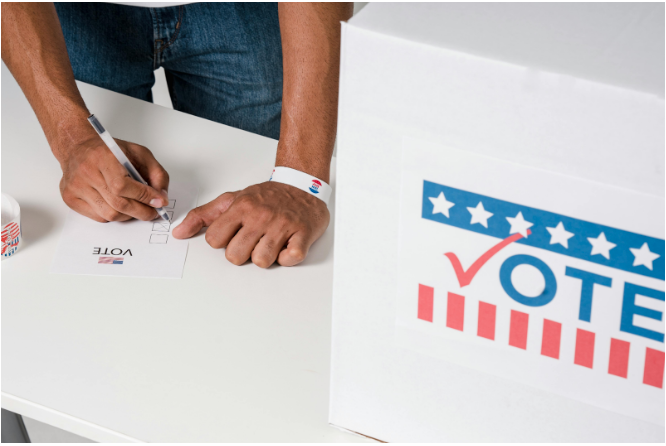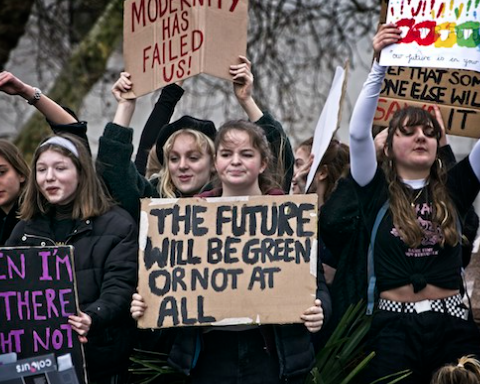By Anna Motel

The issue of felony disenfranchisement stands as a barrier between the realization of all fundamental rights and the principles of justice, raising questions about representation and the path to social reintegration. Studies indicate that three out of every four Americans who cannot vote due to a felony conviction, reside within our communities while completing felony probation or parole. This issue can be felt even in the familiar streets of downtown Athens, where the heartbeat of the city oscillates. Among the various activities and gatherings and throngs of people, are those who were formerly incarcerated. There are those who, despite their past mistakes, have become an integral part of the community. They volunteer, advocate for policy reform and contribute to the betterment of the community. Despite their efforts, there is a glaring disparity. Because of a history of incarceration, they are denied the fundamental right to vote, depriving them of any way to enact changes in the laws and policies that directly impact them.
The consequences of disenfranchisement extend beyond the individual level. Research indicates that it contributes to the perpetuation of systemic inequalities within communities, particularly those already marginalized. A study conducted by the Sentencing Project reveals that Georgia’s disenfranchisement rate of 3.1% exceeds the national average of 2.0%, with 5.2% of the state’s Black voting-age population being denied the right to vote.
In Georgia, as in many other states, individuals convicted of felonies lose their right to vote even after completing their sentences. The impact is staggering, with African American men disproportionately affected by these laws. According to the Department of Justice, the percentage of Black men likely to go to prison during their lifetime is 28.5% compared to that of white men, who have a likelihood percentage of 4.4%. African American men are six times more likely than white men to be incarcerated during their lifetimes. This disparity in incarceration rights draws attention to the racial inequities embedded within the criminal justice system. It reflects a history of systemic biases, from policing practices to sentencing outcomes, disproportionately affecting communities of color. These inequities not only increase cycles of marginalization but also challenge the principles of fairness and equality our democratic society claims to be built on.
In addition to the challenges faced by formerly incarcerated individuals in Georgia, the issue is exacerbated by the involvement of private prisons in the state. Private prisons, operated by corporations for profit, have a vested interest in maintaining high incarceration rates to ensure financial viability. Consequently, they often lobby for harsher sentencing laws and contribute to the continuation of policies that disenfranchise individuals with felony convictions. Profit motives often take precedence over rehabilitation and reintegration efforts, and contribute to the overrepresentation of African American men in the criminal justice system.
The journey of reintegration for individuals post-incarceration is filled with challenges, from securing employment to rebuilding relationships. As stated above, one often overlooked aspect is the restoration of civic rights. When individuals are unable to vote, they are effectively silenced in the democratic process. This absence of voice not only eliminates their sense of belonging but also hinders the collective representation of their communities. In places like Athens-Clarke County, where historical disenfranchisement and racial tensions persist, restoring voting rights to the previously incarcerated is crucial for promoting inclusivity.
Efforts to address felony disenfranchisement are gaining momentum across the country. Organizations like Common Cause advocate for the restoration of voting rights, highlighting the importance of civic engagement in reducing recidivism and fostering community reintegration. Local and state organizations in Georgia, including the American Civil Liberties Union or ACLU of Georgia and the Georgia Coalition for the People’s Agenda, are actively engaged in legal battle and advocacy efforts to change laws that prolong this deprivation of fundamental rights. The Georgia Justice Project is another organization that plays a crucial role in advocating for criminal justice reform and supporting individuals affected by the system. The Georgia Justice Project focuses on providing legal representation, support services, and advocacy for individuals impacted by the criminal justice system. Through these efforts, the project aims to address the root causes of mass incarceration, promote alternatives to incarceration and advocate for the restoration of voting rights. By working collaboratively with community members, policymakers, and others, these organizations strive to create a more just society where everyone has the opportunity to rebuild their lives and participate fully in civic life.
Photo Credit: https://www.pexels.com/photo/a-person-with-a-wristband-casting-a-vote-5926256/

